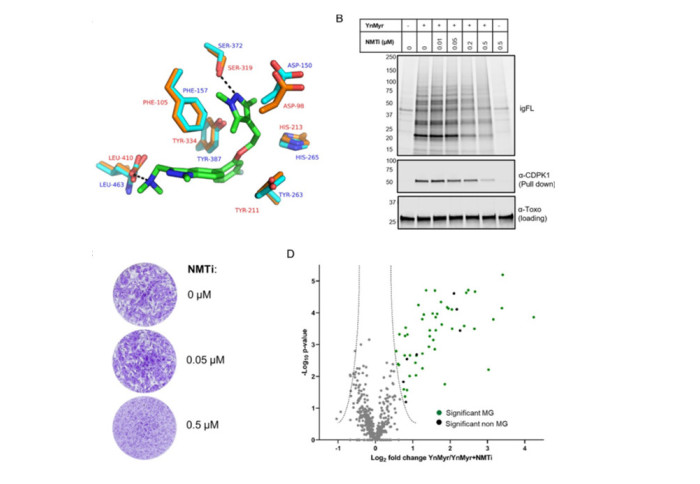Profiling of modified proteins identifies a component of parasitic invasion

Lipid modification to parasite protein is shown to be a key factor during invasion process
A team of researchers across the Francis Crick Institute, Imperial College London and Université Grenoble Alpes has revealed a key protein in host cell invasion in the parasite Toxoplasma gondii, as published in eLife. Tate group alumnus Dr Broncel led the chemoproteomic study and collaborated with current Tate group member Dr Bartlett amongst others across the groups.
The research focussed on the activities of the protein NMT, an enzyme which modifies proteins with a fatty acid chain in a process called myristoylation. The experiments centred around a proteomics approach, using a fatty acid analogue to identify modified targets, and an inhibitor was used to validate this approach. 65 T. gondii proteins were identified by these techniques as being modified by NMT, one of which, MIC7, was found to be important for T. gondii fitness. Further research supported the use of NMT inhibition as a strategy to combat T. gondii infection by disruption of the lytic cycle, with scope for improved inhibitors, and even a pan-pathogen approach based on NMT structural similarity in different species of parasite.
Congratulations to Dr Broncel and the whole team on their research, which was supported by the Francis Crick Institute and Cancer Research UK.
Article text (excluding photos or graphics) © Imperial College London.
Photos and graphics subject to third party copyright used with permission or © Imperial College London.
Reporter
Dr Ravi Singh
Department of Chemistry